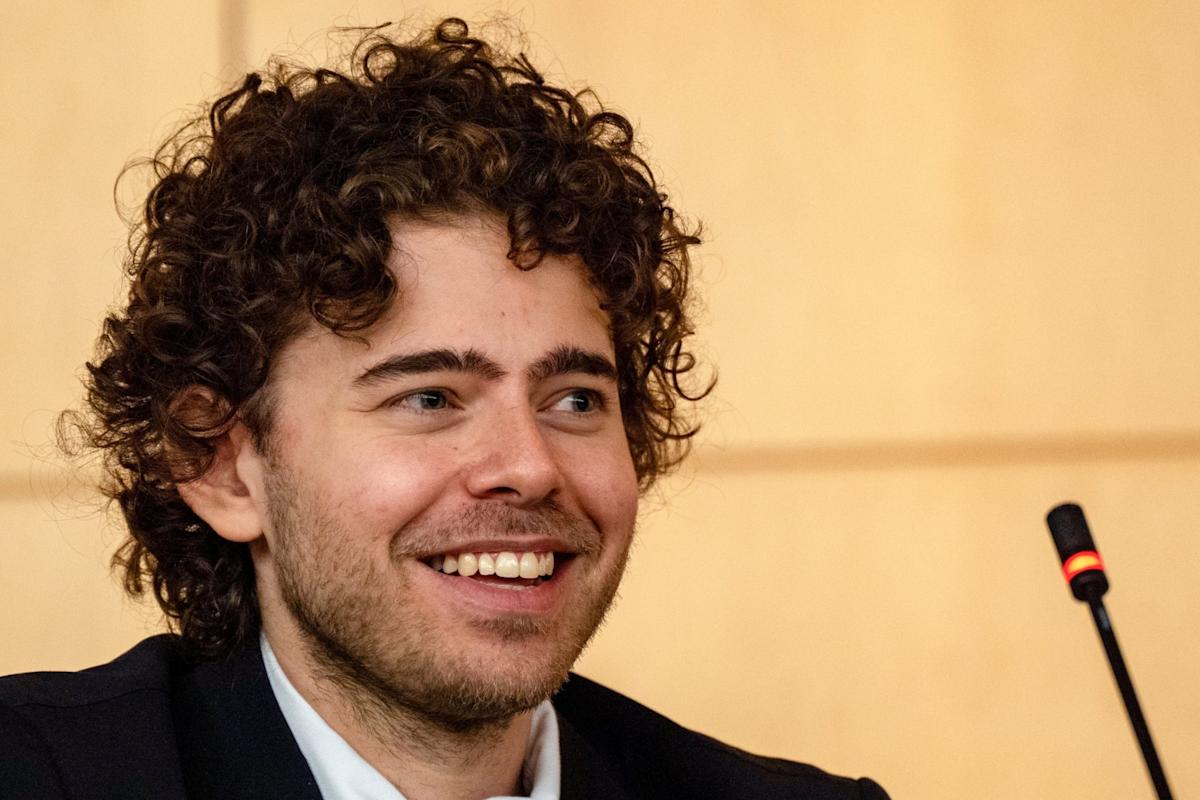In a recent development for…
Blog
-

One-click theme packs are coming to Android thanks to Google’s new Theme Manager
Mishaal Rahman / Android Authority
Pixel phones haven’t traditionally been known for providing extensive customization options, but that perception is changing as Google adds new home and lock screen personalization features in the latest…
Continue Reading
-

Babil Khan returns to Instagram with a cryptic note months after viral breakdown video: “My soul was tired of…” : Bollywood News
After a months-long social media hiatus, actor Babil Khan has returned to Instagram with a cryptic post that has sparked conversations online. The Qala actor, who went offline earlier this year following a widely discussed emotional video,…
Continue Reading
-

Beat diabetes the Indian way: Gurugram-based nutritionist reveals 9 veggies that naturally control blood sugar and fight insulin resistance
Diabetes management doesn’t always require expensive supplements or drastic lifestyle changes. According to certified Gurugram-based nutritionist and weight loss specialist Leema Mahajan, some everyday Indian vegetables contain compounds that…Continue Reading
-
Gracious Djokovic focuses on Vacherot, not physical struggles after Shanghai loss: 'All about him' – ATP Tour
- Gracious Djokovic focuses on Vacherot, not physical struggles after Shanghai loss: ‘All about him’ ATP Tour
- Vacherot downs ailing Djokovic in Shanghai SF, makes M1000 history ATP Tour
- Unwell Djokovic defeated in Shanghai semis by qualifier…
Continue Reading
-

Doctor warns ‘sitting for too long can increase risk of venous stasis’; shares 6 daily habits harming your heart health
Heart disease doesn’t develop overnight – it’s often the result of everyday habits that slowly chip away at cardiovascular health. From what we eat and drink to how we sleep, move, and manage stress, small daily choices can have a big…
Continue Reading
-

The OncFive: Top Oncology Articles for the Week of 10/5
Welcome to OncLive®’s OncFive!
Every week, we bring you a quick roundup of the 5 top stories from the world of oncology—ranging from pivotal regulatory decisions to key pipeline updates to expert insights on breakthroughs that are moving the needle in cancer care. This resource is designed to keep you informed on the latest updates in the space, in just a matter of minutes.
Here’s what you may have missed this week:
The FDA cleared cemiplimab-rwlc (Libtayo) for adjuvant use in adult patients with cutaneous squamous cell carcinoma (CSCC) at high risk of recurrence after surgery and radiation. The decision was supported by findings from the phase 3 C-POST trial (NCT03969004), in which cemiplimab reduced the risk of recurrence or death by 68% vs placebo (HR, 0.32; 95% CI, 0.20-0.51; P < .0001), with median disease-free survival not reached in the cemiplimab arm. Recurrence occurred in 9% of patients in the cemiplimab arm vs 30% of those in the placebo arm. The toxicity profile was consistent with prior findings, with common adverse effects (AEs) including rash, pruritus, and hypothyroidism. The decision signifies the first and only immunotherapy approved for adjuvant treatment in those with CSCC with a high risk of recurrence following surgery and radiation.
The FDA has issued a complete response letter (CRL) to the new drug application (NDA) for dasatinib (Dasynoc) for use in patients with chronic myeloid leukemia (CML). The CRL stems from Good Manufacturing Practice observations at the company’s contract manufacturing site, prompting a temporary pause in new product approvals until corrective actions are completed. The manufacturer has begun remediation efforts and plans to meet with the regulatory agency later this year to address outstanding issues. The NDA for dasatinib sought approval for a formulation designed to maintain efficacy at lower doses, reduce pharmacokinetic variability, and minimize drug-drug interactions associated with acid-suppressive agents. Despite manufacturing delays, the drug remains under active development, with plans for expedited resubmission once compliance measures are met.
The regulatory agency also accepted and granted priority review to the biologics license application (BLA) seeking approval of Orca-T for select patients with acute myeloid leukemia (AML), acute lymphoblastic leukemia (ALL), and myelodysplastic syndrome (MDS). The application is supported by data from the phase 3 Precision-T trial (NCT04013685), in which Orca-T significantly improved 1-year moderate-to-severe chronic graft-vs-host disease (cGVHD)–free survival vs conventional allogeneic hematopoietic stem cell transplant (allo-HSCT; 78% vs 38%; HR, 0.26; P < .00001). Those who received Orca-T also experienced lower rates of moderate-to-severe cGVHD (13% vs 44%) and grade 3/4 acute GVHD (6% vs 17%) vs allo-HSCT. One-year overall survival (OS) was 94% in the Orca-T arm and 83% in the allo-HSCT arm, and non-relapse mortality rates were 3% vs 13%, respectively. The target action date for the BLA is set for April 6, 2026.
Data from the phase 3 TROPION-Breast02 trial (NCT05374512) showed that datopotamab deruxtecan-dlnk (Dato-DXd; Datroway) significantly improved OS and progression-free survival (PFS) vs investigator’s choice of chemotherapy in patients with locally recurrent, inoperable, or metastatic triple-negative breast cancer (TNBC) not able to receive immunotherapy. The safety profile of Dato-DXd was consistent with prior breast cancer studies. AstraZeneca and Daiichi Sankyo will share these results with regulatory authorities, highlighting the potential of the antibody-drug conjugate as the first therapy to significantly improve OS in this population.
The FDA has granted fast track designation to the TEAD autopalmitoylation inhibitor VT3989 for use in patients with unresectable malignant pleural or non-pleural mesothelioma who have progressed after previous immune checkpoint inhibition and platinum-based chemotherapy. Preliminary findings from an ongoing phase 1/2 trial (NCT04665206) demonstrated that the agent led to reductions in target lesion size in both pleural and non-pleural mesothelioma, irrespective of NF2 mutational status. The multicenter trial includes dose-escalation, dose-expansion, and combination cohorts, which are evaluating safety, antitumor activity, and pharmacokinetics of the agent, with oral dosing ranging from 25 mg to 200 mg. Common treatment-related AEs included albuminuria, proteinuria, fatigue, peripheral edema, and gastrointestinal and hepatic effects.
Honorable Mentions
- OncLive spoke with the following leading genitourinary oncology experts to highlight the most anticipated abstracts and data at the
2025 ESMO Congress : David A. Braun, MD, PhD, of Yale Medical School; Alan Tan, MD, of Vanderbilt University Medical Center; and Axel Merseburger, MD, PhD, of University Hospital Schleswig-Holstein.Check out the exclusive preview ahead of the meeting. - From further clarifying the role of PD-(L)1 inhibition in gastric cancer and colorectal cancer, to demonstrating the potential predictive value of minimal residual disease negativity in late-stage colon cancer, gastrointestinal oncology data presented at the 2025 ESMO Congress are anticipated to challenge current standards of care and bring new questions to the forefront of research in the field. In this
exclusive preview , Tanios S. Bekaii-Saab, MD, of Mayo Clinic; Suneel Kamath, MD, of Cleveland Clinic Lerner College of Medicine of Case Western Reserve University; and Kanwal P. S. Raghav, MBBS, MD, of The University of Texas MD Anderson Cancer Center, share their most anticipated abstracts.
Continue Reading
- OncLive spoke with the following leading genitourinary oncology experts to highlight the most anticipated abstracts and data at the
-

Shayne Coplan figured out a society that gambles on everything
Less than 10 years after dropping out of New York University and then starting what would become the prediction market Polymarket in the bathroom of his Lower East Side apartment, Shayne Coplan has been crowned the youngest ever self-made billionaire by capitalizing on Gen Z’s readiness to bet on anything.
On Tuesday, the New York Stock Exchange’s parent company, Intercontinental Exchange, invested $2 billion cash in Polymarket, skyrocketing the company’s valuation to $9 billion post investment and making CEO and founder Coplan a billionaire at the age of 27, according to the Bloomberg Billionaire Index.
Through the partnership, the NYSE will distribute Polymarket’s data and the two companies will work together on tokenization initiatives, according to a press release.
Polymarket has a simple premise: Markets are the best way to source truth. By giving users a stake in predicting literally everything, from the 2025 World Series Champion to when the government shutdown will end (both bets are currently available on its website), Polymarket aims to “harness the power of free markets to demystify real events that matter most to you,” Coplan said in a post on X.
Polymarket matches users with opposing bets and pays out $1 per “share” for every correct guess with the help of a U.S. dollar-backed stablecoin and a blockchain built on top of Ethereum’s infrastructure. This means if you bet “yes” on an outcome at 37 cents and it proves to be true, you’ll net a 63-cent profit. You can also sell your stake in an outcome before the event happens, which can also net you a profit if the price of your shares go up as the outcome you chose becomes more likely.
Aleksandar Tomic, an economist and associate dean for strategy, innovation, and technology at Boston College, said prediction markets like Polymarket have existed before. A similar platform, Intrade, received widespread media attention for its success in predicting the 2008 and 2012 U.S. elections before shutting down in 2013. Polymarket and its competitors seem to be succeeding where others have failed. Polymarket for its part has drawn in younger users with a better platform and by seizing upon the pandemic-era gambling trend especially prevalent in Gen Z men—not to mention with a little help from a newly friendly regulatory environment.
“I think these types of markets are just another place to make a bet,” Tomic told Fortune.
Polymarket did not immediately respond to a request for comment.
Until last month, Polymarket was banned in the U.S., largely due to federal regulators’ objections to its “speed over scrutiny” business model. In 2022, the company paid a $1.4 million fine after the Commodity Futures Trading Commission (CFTC) said it was allegedly operating an unregistered event market. The platform was subsequently barred from the country. As wagers on the 2024 election grew last year, the CFTC renewed its scrutiny, and the FBI raided founder Shayne Coplan’s home in November. Just under a year later—following President Trump’s return to office, and with Donald Trump Jr. now serving as an adviser to the company—the CFTC and Justice Department closed their investigations without filing charges, clearing the way for Polymarket’s return to the U.S.
Continue Reading
-

World No 204 Valentin Vacherot topples Djokovic to make history in Shanghai | Tennis
Valentin Vacherot continued his fairytale run through the Shanghai Masters draw by toppling an injured Novak Djokovic 6-3, 6-4 to become the lowest-ranked Masters 1000 finalist.
In his first match against a top-five opponent, let alone the…
Continue Reading
-

How can Anthropic stand out in the AI wars? I -2-
To Anthropic’s credit, it has been making inroads into the consumer market – with one of its fastest-growing segments being its “Max” subscription, priced at $200 per month. And Wong and Duverce both pointed to Claude’s coding capabilities as a differentiating advantage in the LLM landscape. Since its full launch in May 2025, Claude Code has already grown to over $500 million in run-rate revenue, with usage growing more than tenfold in just three months, according to Anthropic.
It’s still early days for AI technology, Giuseppe Sette, co-founder of AI startup Reflexivity, told me. There’s still no definitive winner among AI models, Sette believes, and Anthropic’s product performs very well in specializations such as coding.
But “the technological frontier is moving at a pace that we’ve absolutely never seen before,” Sette added. “Things are changing so fast that a burst of acceleration could put [Anthropic] at the forefront – or they could get left behind.”
-Christine Ji
This content was created by MarketWatch, which is operated by Dow Jones & Co. MarketWatch is published independently from Dow Jones Newswires and The Wall Street Journal.
(END) Dow Jones Newswires
10-11-25 0800ET
Copyright (c) 2025 Dow Jones & Company, Inc.
Continue Reading
